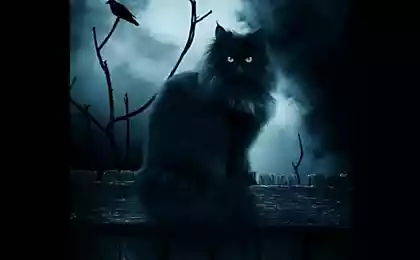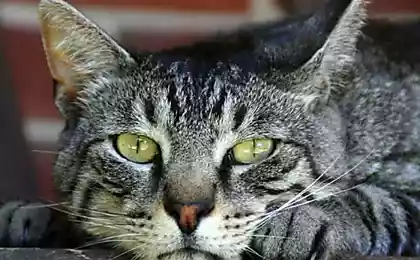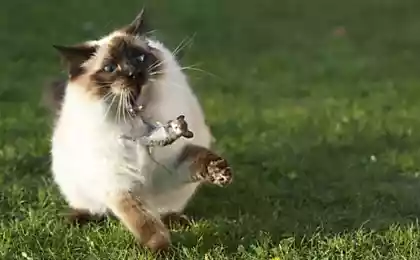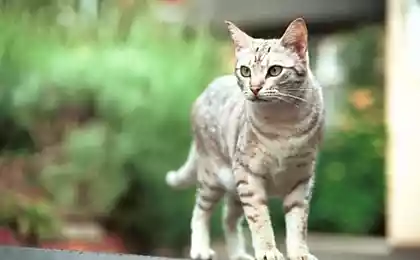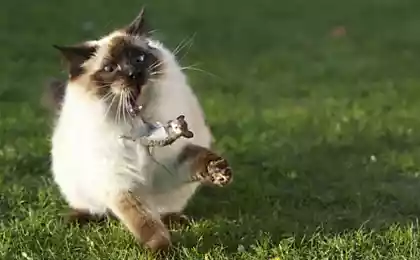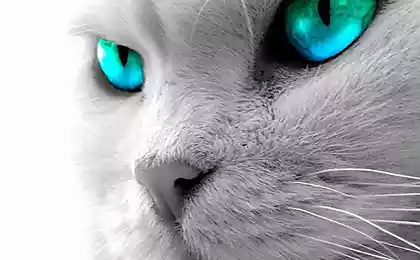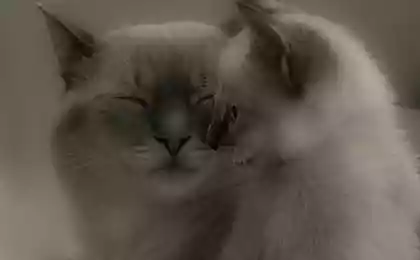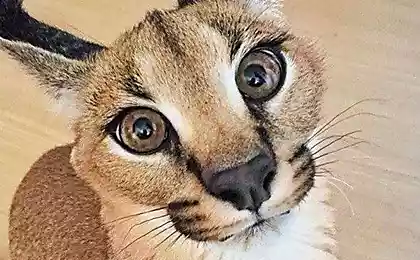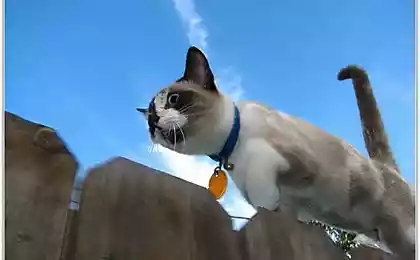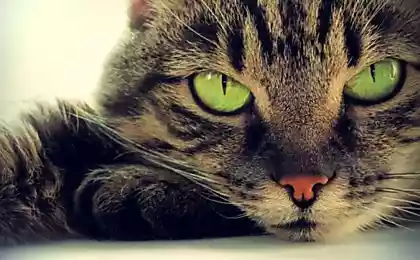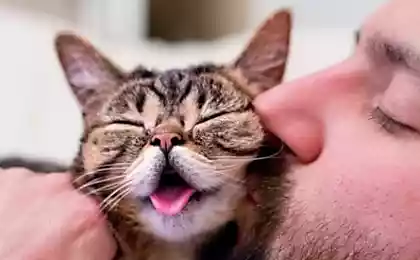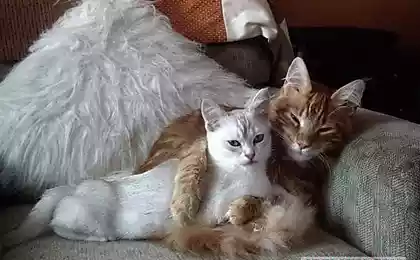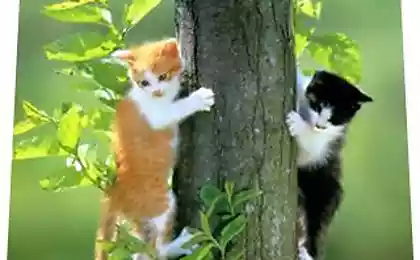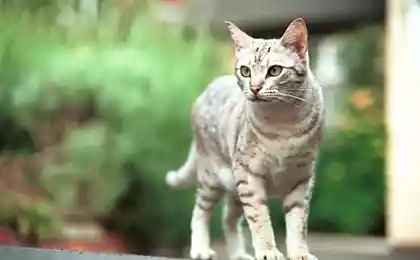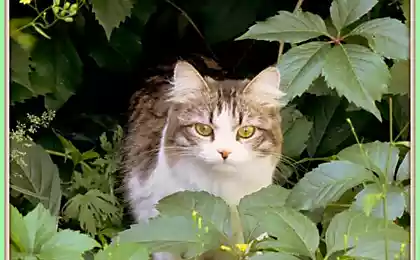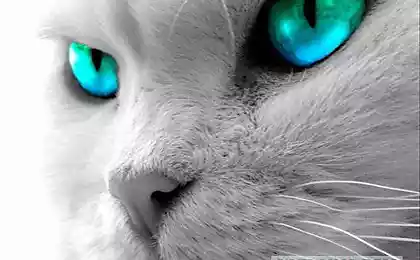Cat - the most cunning kind of animals on the planet: they did not have to domesticate because at one time they did it yourself! In this collection
Website gathered facts about how relations of people with cats. < br />
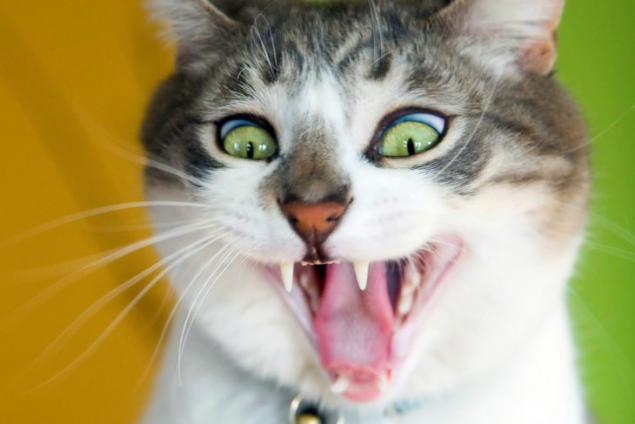
1. Your cat deliberately ignores you h2> Your cat ignores you, not because you do not care about her: she's doing it on purpose.
To prove it, Japanese scientists claim that the cat distinguishes the master's voice from the speech of others. In the course of scientific research to the fluffy "volunteers" to contact their owners and strangers, and the cat could not see who owns the voice. Animals pulled the head and ears at the sound, and at recognizing voices host their pupils dilate, which means bright emotions.
One of the study's authors Atsuko Saito explained: «During the development of their cats have learned to hide their feelings in order to survive». In the wild, a cat trying to hide their illness, not to show weakness, as the strength of the predator often depends on his life. The same make and domestic cats: ill, they tend to hide in the corner and do not let your self.
2. As the world looks through the eyes of cats h2> While bodies of cats on a structure largely similar to human, feline view has its own specifics. Cats well oriented in low light and sensitive to the slightest movement, but for the sake of this in the evolution they had to sacrifice the subtleties of color perception.

Artist and researcher Nicholas Lamm managed to create a reliable model that makes it possible to imagine how cats see the surrounding reality.

Nikolai took into account a variety of factors: for example, the breadth of peripheral vision - in cats, it is 30 on each side, and a man can boast of only 20, so the total breadth of a feline - 200 (180 people). But we can see much further - a man well able to distinguish objects at a distance of about 30 meters, while the cat is difficult to consider the subject, if it is within seven meters of it.

Also, cat's eye perceives bad brown, red and orange, but sees great blue and yellow

3. Cats meow only to attract the attention of the person h2> sound "meow" was intended by nature to little kittens can call up your mother. Growing kittens need to stop using it. Adult feral cats living in their natural habitat, not ever meow.
In the process of domestication of the cat come to the conclusion that their infantile "meow" effectively on the hosts: sounds pitifully and loud enough. Meow has become a universal means of communication adult cats and cats with a man. Communicating with each other, cats do not meow.
4. While people especially domesticated dogs, cats domesticated themselves independently h2> The dogs were among the first animals to be domesticated. It is believed that hunter-gatherers were kidnapped cubs and raised them as his companion for hunting.
As for cats, then they mostly domesticated independently. Once people began to engage in agriculture and lead a sedentary life, they had to learn to keep large stocks of grain in storage silos and primitive.
And if in one place a lot of stored grain, any farmer will tell you that eventually there will come the hordes of rats. With this amount of food - rodents - cat gradually adapted to life close to the people, have become more open and trusting, and eventually domesticate
People tolerate cats, because they hunted rats and thus helps to store grain and cat people suffered because of human granaries was always full of food for every taste.
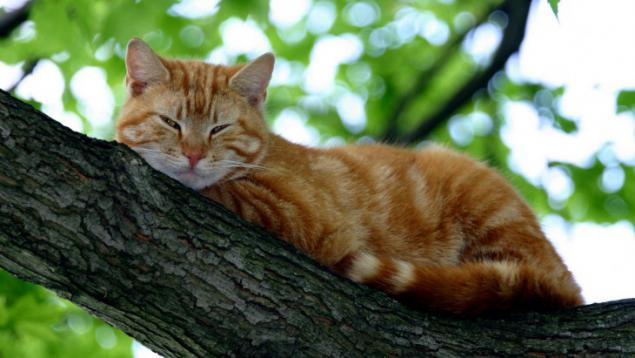
5. Cats under stress from too gentle hosts h2> Studies of the behavior of domestic cats gave a curious result: it turns out, pets not always like petting host
Experts from the University of Sao Paulo in Brazil, the University of Lincoln in the UK and the Vienna University of Veterinary Medicine found that cats often experience anxiety and worry at the touch of a man, so to avoid exposing it to constant stress, the owner is better to avoid too frequent tactile contact with the pet.
As explained by Professor Daniel Mills: "According to our research the highest stress experienced by those cats who allow themselves to be stroked, although they do not like." Animals that owners often and insistently stroked, in the body there was an increased level of cortisol - a stress hormone.
6. Hunting for a laser pointer gets traumatized cat h2> Cat owners know that their pet is no better game than the "hunt" for the laser pointer or the sun "bunny". Although the light spot or trace of the laser not even remotely similar to mice and other prey at the sight of their unexpected quick movements in cats wake hunting instincts and an overwhelming desire to throw himself into the chase, which ultimately doomed to failure
Ethologists (specialists in animal behavior) believe that part of the "hunt" for the laser pointer or the sun "bunny" can be harmful to cats because of the elusiveness "game».
"The persecution of the spot light so attracts cats, they can not stop - it's a habit, but the result is unattainable, and" unsuccessful pursuit of "provoking trauma" - said in an interview with «Live Science» Professor Nicholas Dodman, a member of the school of veterinary medicine .
7. Cats know how to manipulate people h2> Cats can not only bring joy to their owners, but also to manipulate them.
A team of scientists analyzed 41 cat behavior and their owners, as well as found by tests, as playful as sociable animals and their owners.
The researchers found that cats and people are strongly influenced by each other. The largest were observed in the mutual relationship of women and young extroverts, active animals. They have enough for successful intercourse minor hints - for example, raised tail indicates the desire of friendly contact. This cat owners love skillfully use, in particular, in order to get more food
"The man and the cat is well-known inclinations and preferences of each other. Their relationship is based on mutual attraction, simplicity of interaction, games, love, and social support, "- says one of the study's authors, Dorothy Gracey.
These relationships are typical for people and nature almost never occur. Cats behave like small children who have not yet learned to speak , the researchers said, stressing that the results of their work allows for a fresh look at these animals.
via factroom.ru







